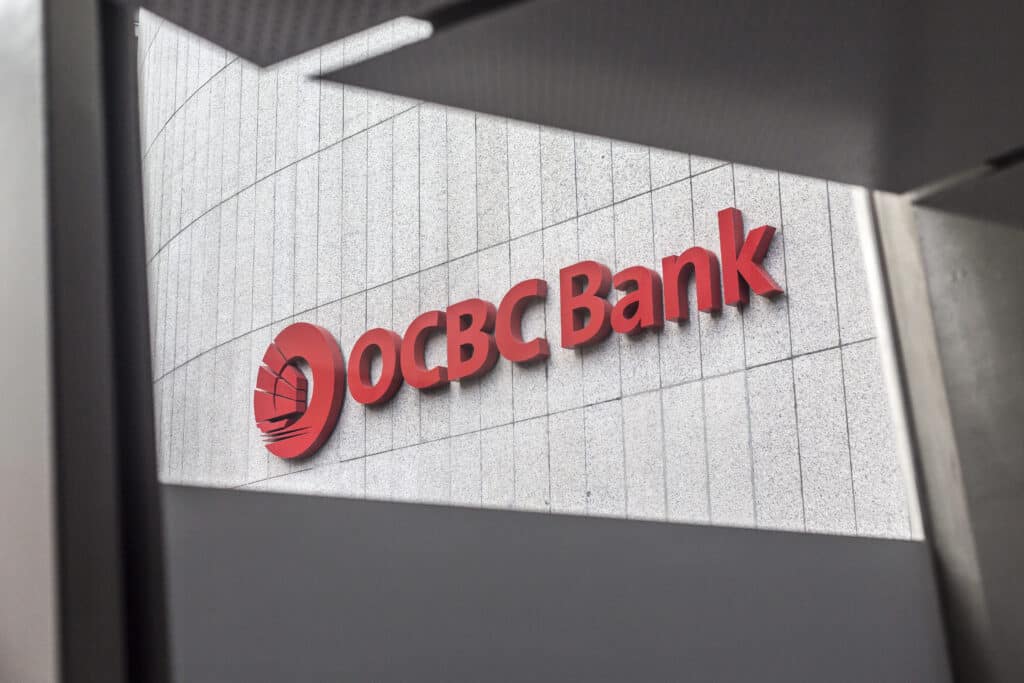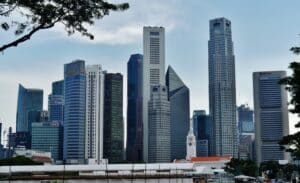Singapore is one of the world’s leading financial centers and a major financial distribution center in Southeast Asia. No wonder, then, that the country has one of the most advanced banking systems in the world, with about 700 local and foreign banks and financial institutions that provide services ranging from consumer banking and asset management to the stock exchange, investment banking, and specialty banking services. insurance services.
At the end of 2004, Singapore’s domestic banking sector consisted of about US$230 billion in assets/liabilities. The leading banks in Singapore are ABN AMRO, Citibank, DBS, HSBC, OCBC, Standard Chartered, and UOB. The country’s central bank is the Monetary Authority of Singapore (MAS), which determines monetary policy, regulates banks and financial institutions, and issues currency. Although there is currently no government deposit insurance program, MAS plans to establish such a system in the near future.
My contact details are hello@adamfayed.com and WhatsApp +44-7393-450-837 if you have any questions.
The information in this article is for general guidance only. It does not constitute financial, legal, or tax advice, and is not a recommendation or solicitation to invest. Some facts may have changed since the time of writing.
Commercial Banking in Singapore
Commercial banking is licensed in Singapore and regulated by the Banking Act. Commercial banks can engage in all possible types of banking activities. In addition to providing commercial banking services, including deposits, loans, and checks, banks may also engage in any other type of banking activity that is regulated or permitted by the MAS, including financial advisory services, brokerage services in the field of insurance and accommodation services in the capital market (Article 30 of the Banking Law describes all possible types of banking activities).
Commercial banks and their representatives do not necessarily need a separate license for such activities, but they must comply with the code of conduct in their business activities prescribed in the Financial Advisers Act (IA) and the Securities and Futures Act (SFA), respectively. In July 2001, the Banking Law was amended to prohibit banks from engaging in non-financial activities.
There are currently 113 commercial banks in Singapore. Commercial banks may operate as full-service banks, wholesale banks, or offshore banks.
Bank of Singapore
This bank is the Singapore subsidiary of OCBC Bank. Formerly known as ING Asia Private Bank, it was acquired by OCBC Bank in 2009 from ING Group for US $ 1.46 billion. As of June 30, 2021, the assets under the Bank of Singapore’s Management (AUM) were USD 125 billion.
Bank of Singapore serves high net worth individuals and wealthy families in its key markets in Asia, Greater China, the Indian Subcontinent, and other international markets.
Bank of Singapore, headquartered in Singapore, has branches in Hong Kong and Dubai, as well as a representative office in Manila. In Europe, the bank serves clients through BOS Wealth Management Europe Société Anonyme (S.A.), which is headquartered in Luxembourg and has an office in London. In Malaysia, he serves his clients through BOS Wealth Management Malaysia. Bank of Singapore is rated Aa1 by Moody’s.
The bank was launched on January 29, 2010, through the acquisition of ING Asia Private Bank by OCBC in 2009 as a result of ING’s restructuring plan following government assistance to ING Group in 2008 due to the financial crisis in the late 2000s. Its current headquarters, Bank of Singapore Center on Market Street, was officially opened in June 2011. Since then, the bank has strengthened its position in the Asia-Pacific region.
In April 2016, OCBC Bank announced that Bank of Singapore, its private banking subsidiary, had acquired Barclays’ asset and investment management business in Singapore and Hong Kong. The deal was completed in November 2016, with US $ 13 billion in assets transferred to the Bank of Singapore. As a result of the acquisition, over 60 private bankers from Barclays have joined the Bank of Singapore.
Bank of Singapore partnered with the Wealth Management Institute and Nanyang University of Technology to launch a private banking training program for its private bankers in May 2016.
In October 2016, Bank of Singapore announced that DZ PRIVATBANK Singapore will refer its clients to the bank as it ceases operations in Singapore. DZ PRIVATBANK is a subsidiary of the third-largest bank in Germany, DZ Bank AG.
In November 2016, Bank of Singapore received regulatory approval to open a branch in the Dubai International Financial Center. The establishment of the branch enables Bank of Singapore to offer a range of private banking solutions, including investments, loans and wealth planning advisory services, to its ultra-high and high-income clients. The branch was officially opened on 19 February 2017 by the Deputy Governor of Dubai and President of the Dubai International Financial Center, His Highness Sheikh Maktoum bin Mohammed bin Rashid Al Maktoum.
In July 2018, Bank of Singapore received an investment company license to operate an asset management subsidiary in Luxembourg for the first time for a Singapore-based private bank. Bank of Singapore, through this new subsidiary, BOS Wealth Management Europe SA, is able to offer a range of private banking and investment advisory solutions to its ultra-high and high-income clients in the European Economic Area (EEA) and the United Kingdom.
BOS Wealth Management Europe S.A. was officially launched on April 1, 2019, in Luxembourg. The next day, the official opening of its UK branch in London took place.
The bank’s parent company, OCBC Bank

Founded in 1932 through the merger of three local banks, the oldest of which was founded in 1912, OCBC Bank is Singapore’s oldest bank.
Recognized for its financial strength and stability, OCBC Bank is currently the second-largest financial services group in Southeast Asia by assets and one of the highest-rated banks in the world with an Aa1 credit rating from Moody’s. It is also consistently ranked among the strongest banks in ASEAN and ranked among the five strongest banks in the world by Bloomberg Markets.
Bank of Singapore main products and services
Your journey begins by knowing your unique priorities, needs, and goals. Based on your risk appetite and preference, we can discuss and bring you tailor-made solutions from our best-in-class product portfolio, based on independent tracking of a large number of funds, structured products, and insurance options.
Your private banker, backed by our team of portfolio managers and trading specialists, is always there to help you make informed financial decisions. Information gathered from our investment strategy and research teams will help you keep abreast of developments in the global market.
Asset creation and preservation
The bank’s long history of managing the wealth of entrepreneurial families has provided them with invaluable know-how to help you realize your investment goals, family management frameworks, and private trusts.
You can invest in several ways through the team of investment professionals; from completely discretionary to active counseling and even execution only. With the right investment plan and the proper management of your assets, you can keep your family wealth for future generations.
Investment products:
- Cash and money markets
- Investment grade bonds
- High yield bonds
- Stock
- Foreign currency
- Derivatives
- Structured Products
- Third mutual funds
- Alternative assets
Investment services:
- Discretionary Portfolio Management: Cash, Securities and Cash
- Portfolio Management Advisory
- Premium Consulting Services Premium Consulting Services for Stocks, Fixed Income and Foreign Currency, as well as direct dealing and 24/7 Forex trading will be fully available for your maximum convenience.
- Available only for accounts registered in Singapore.
Asset preservation:
- Real estate planning
- Financial planning
- Life insurance
- Provided by external parties / insurance brokers contracted by the Bank
Alternative investments
Navigating the markets is even more challenging today as long-term expectations of returns on conventional assets are declining and investors around the world are having to look harder for returns.
The key characteristics of alternative assets mean that they provide greater portfolio diversification and generally generate higher returns than publicly traded assets. Reaping the benefits of alternative investments will become increasingly important for achieving key investment objectives.
At Bank of Singapore, they strive to provide clients with institutional access and global alternative investment opportunities in venture capital, private equity, private equity, hedge funds, real assets, and private equity.
What are alternative investments?
In simple terms, alternative investments are assets that do not belong to traditional asset classes such as stocks, ETFs, bonds, and cash.
Alternative investments include private equity, private equity, hedge funds, and real assets. They can provide you with unique opportunities and access to other growth zones to increase your wealth.

Benefits of investing in alternatives
Alternative investments tend to behave differently than traditional assets and adding them to a portfolio can be beneficial.
- Increase the impact: Alternative investments potentially offer alpha generation through alternative sources of income that are less affected by macroeconomic changes.
- Low volatility: Many alternative investments are less volatile because they are less dependent on broad market sentiment and tend to show a lower correlation with traditional investments, making them a good choice for those looking for portfolio stability.
- Broader diversification: Alternative investments have a low correlation with traditional asset classes and can help diversify a portfolio by offering access to a wide range of alternative sources of risk and return.
- Access to unique investments: Alternative investments in private markets provide access to investments that are not publicly traded, such as being an early investor in a startup. With private market funds, co-investment, and private equity, you can include cutting-edge companies or unicorns at the forefront of technology, health, and sustainability in your portfolio.
Types of alternative investments
While alternative investments share key features in common, they also represent a diverse asset class. Here are some of the most common types of alternative investments.
- Private equity: Private equity invests in non-public or private companies in exchange for shares or ownership. There are many subsets of private equity, including venture capital, growth capital, and buyouts.
- Private loan: A private loan or private debt is an investment that is not funded by banks, traded or issued on the open market. Private loan lending includes direct lending, mezzanine, problem loans, and special financing.
- Hedge funds: Hedge funds are pooled investment funds that use a range of unconventional strategies, such as long and short stocks, to maximize the overall potential for return and diversify the portfolio.
- Real assets: Real assets are tangible assets such as real estate and infrastructure. Investments with such underlying assets can provide protection against macroeconomic factors such as inflation and currency fluctuations.
- Direct investment: These alternative investments include direct investments in start-ups and private companies, making investments with high risk and high returns.
Credit solutions
The bank’s clients can benefit from their portfolio of mortgage and personalized financing options to increase profitability or increase liquidity.
You will also have the opportunity to choose the investment and commercial banking services of OCBC Bank – the parent company – to finance family businesses and start-ups.
Financing:
- Portfolio usage
- Residential real estate financing
- Financing insurance premiums
- Corporate finance
- Structured transactions
- Provided by OCBC Bank or external parties
Wealth planning

The bank’s tailor-made wealth planning solutions provide improved strategies for your specific succession needs, including serving beneficiaries and assets located in different parts of the world and creating charitable donation structures.
Preserving and passing on wealth to the next generation is important in every way. That’s why they provide industry-leading services through their skilled wealth planners who will work with the subsidiary BOS Trustee Limited to help you protect your family wealth and ensure it is passed on to future generations without hindrance.
The wealth planners are committed to knowing your asset profile by understanding your country of residence, business structure, and asset location, and weighing your plans to preserve and transfer your wealth to those who matter most to you.
They will offer customized options – from a simple probate to a trust or private trust company – to provide you with a solution that protects your heritage and gives you peace of mind.
Drawing on the specialized skills of external experts (lawyers, accountants, trustees, and consultants in specific areas such as taxation, immigration, philanthropy, etc.) combined with the extensive professional planning experience for some of Asia’s richest families, the Bank of Singapore can help you create a robust management plan and family constitution that takes into account your family’s inheritance and charitable goals.
They can help your family connect with a shared vision of the continuity of her wealth, her values, and her business. If you feel obligated to support meritorious causes such as education, health care, or social entrepreneurship, they can provide you with access to professionals to guide you throughout the donation process so that you can achieve the most positive impact while staying in line with your values and resources.
Through forums and various programs, they provide platforms for collaborative philanthropy, creating networking opportunities for donors to connect with key influencers, community charities, and family business leaders to share best practices and experiences.
Trust services and Trust management
- Acting as a trustee of Singapore, Jersey or other discretionary trusts in accordance with applicable law.
- Act as trustee of Jersey law trusts and as administrator of private trust companies.
- Acting as a trustee of charitable foundations
- Through trust structures, BOS Trustee can hold:
- Bank accounts with Bank of Singapore and third party banks
- Life insurance policies
- Residential Properties
- Commercial real estate
- Pre-IPO Shares
- OTC company shares
Financial planning
By combining our loan solutions, life insurance, and wealth planning strategies, we can help you improve liquidity, manage risk, invest more efficiently and provide other benefits to your property to meet your family’s long-term expectations.
Sustainable Investing
If you are focused on environmental protection, gender equality, or other goals, the bank can work with you to align your investment strategy with your values and financial goals. To help you build and manage your sustainable investment portfolio, the bank’s special team will guide you through a systematic process:
- Understanding the latest investment trends and different ways to invest sustainably.
- Determining the approaches that best suit your investment and sustainable preferences.
- Portfolio managing based on your investment objectives and your expectations of risk and return.
- Reviewing your portfolio regularly with you to ensure that your investment strategy is in line with your goals.
At Bank of Singapore, they integrate environmental, social, and governance (ESG) analysis into our approach and assessment of investment opportunities. Looking through the ESG lens is one of the most powerful ways to determine your long-term ROI.
They take a forward-looking and transition-based approach that takes into account not only ESG’s current and past investment opportunity profile but also their assessment of its future trajectory.
Financial intermediaries
For independent asset managers, external financial advisors, and multi-family offices. Your goal is clear – to serve your customers in order to protect and increase their wealth. The bank’s goal is to help you achieve your goal.
At Bank of Singapore, the global teams are ready to help you bring innovative solutions to your customers. More importantly, they are committed to helping you build lasting, trusting relationships with your client.
Pained by financial indecision?

Adam is an internationally recognised author on financial matters with over 830million answer views on Quora, a widely sold book on Amazon, and a contributor on Forbes.



